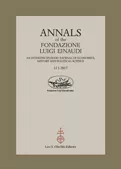The international financial crisis was followed by the sovereign debt crisis in the euro area. This article discusses the main institutional and policy changes that have taken place in the European Union (EU) in response to these crises. It first examines the EU’s response to the financial crisis, distinguishing between the short-term crisis management phase and the post-crisis reform of the framework for financial services regulation in the EU. Subsequently, the euro area’s response to the sovereign debt crisis is discussed by examining the setting up of mechanisms of financial support to ailing countries, the tightening up of fiscal rules, and the establishment of Banking Union. The article argues that the lack of effective political leadership in the EU, the interlocking mechanisms of policy-making in the EU, and the different preferences of the member states have generated collective action problems in the reform of European economic governance. Hence, domestic political economy interests have often prevailed at the expense of effective collective euro area solutions. Overall, the EU’s response has been reactive, belated and piecemeal. Several measures have been watered down during the complex EU negotiations. However, these often incremental changes, taken together, amount to a substantial reform of European economic governance.

 Clarke, P. (2017), “Keynes and the Manchester Guardian’s Reconstruction Supplements”, Annals of the Fondazione Luigi Einaudi, 51(2): 9-23
Clarke, P. (2017), “Keynes and the Manchester Guardian’s Reconstruction Supplements”, Annals of the Fondazione Luigi Einaudi, 51(2): 9-23

